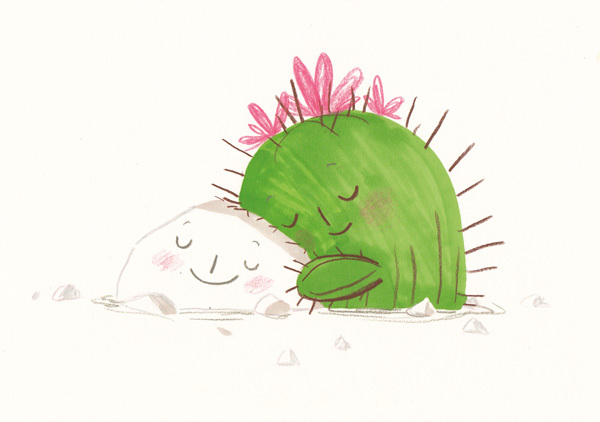How to Love: Legendary Zen Buddhist Teacher Thich Nhat Hanh on Mastering the Art of ŌĆ£InterbeingŌĆØ | Brain Pickings
Adam Rifkin stashed this in #love
Stashed in: Interconnectedness!, #happiness, Respect, Zen, #kindness, Inclusion, Joy!, Listen!, Trust, Empathy, Awesome, Compassion, The Internet is my religion., Love, @brainpicker, Compassion, humanity, Philosophy, empathy, Save, compassion
At the heart of Nhat HanhŌĆÖs teachings is the idea that ŌĆ£understanding is loveŌĆÖs other nameŌĆØ ŌĆö that to love another means to fully understand his or her suffering.
ŌĆ£SufferingŌĆØ sounds rather dramatic, but in Buddhism it refers to any source of profound dissatisfaction ŌĆö be it physical or psychoemotional or spiritual.
Understanding, after all, is┬Āwhat everybody needs┬ĀŌĆö but even if we grasp this on a theoretical level, we habitually get too caught in the smallness of our fixations to be able to offer such expansive understanding. He illustrates this mismatch of scales with an apt metaphor:
If you pour a handful of salt into a cup of water, the water becomes undrinkable. But if you pour the salt into a river, people can continue to draw the water to cook, wash, and drink. The river is immense, and it has the capacity to receive, embrace, and transform. When our hearts are small, our understanding and compassion are limited, and we suffer. We canŌĆÖt accept or tolerate others and their shortcomings, and we demand that they change. But when our hearts expand, these same things donŌĆÖt make us suffer anymore. We have a lot of understanding and compassion and can embrace others. We accept others as they are, and then they have a chance to transform.
Real, truthful love is rooted in four elements ŌĆö┬Āloving kindness, compassion, joy,┬Āand┬Āequanimity┬ĀŌĆö fostering which lends love ŌĆ£the element of holiness.ŌĆØ
The first of them addresses this dialogic relationship between our own suffering and our capacity to fully understand our loved ones:
The essence of loving kindness is being able to offer happiness. You can be the sunshine for another person. You canŌĆÖt offer happiness until you have it for yourself. So build a home inside by accepting yourself and learning to love and heal yourself. Learn how to practice mindfulness in such a way that you can create moments of happiness and joy for your own nourishment. Then you have something to offer the other person.
[ŌĆ”]
If you have enough understanding and love, then every moment ŌĆö whether itŌĆÖs spent making breakfast, driving the car, watering the garden, or doing anything else in your day ŌĆö can be a moment of joy.
This interrelatedness of self and other is manifested in the fourth element as well, equanimity, the Sanskrit word for which ŌĆö┬Āupeksha┬ĀŌĆö is also translated as ŌĆ£inclusivenessŌĆØ and ŌĆ£nondiscriminationŌĆØ:
In a deep relationship, thereŌĆÖs no longer a boundary between you and the other person. You are her and she is you. Your suffering is her suffering. Your understanding of your own suffering helps your loved one to suffer less. Suffering and happiness are no longer individual matters. What happens to your loved one happens to you. What happens to you happens to your loved one.
[ŌĆ”]
In true love, thereŌĆÖs no more separation or discrimination. His happiness is your happiness. Your suffering is his suffering. You can no longer say, ŌĆ£ThatŌĆÖs your problem.ŌĆØ
Supplementing the four core elements are also the subsidiary elements of┬Ātrust┬Āand┬Ārespect, the currency of loveŌĆÖs deep mutuality:
When you love someone, you have to have trust and confidence. Love without trust is not yet love. Of course, first you have to have trust, respect, and confidence in yourself. Trust that you have a good and compassionate nature. You are part of the universe; you are made of stars. When you look at your loved one, you see that he is also made of stars and carries eternity inside. Looking in this way, we naturally feel reverence. True love cannot be without trust and respect for oneself and for the other person.
Thich Nhat Hanh and many other great Buddhist teachers are falling into the same logical or illogical trap as western love philosophy┬Ā
They are new age fallacies.┬Ā
They are trying to move towards the non duality of self and other, which is not our experience and outside of meditation will not be your experience.┬Ā
At the same time they unable to move away from the duality of feelings, perceptions and emotion.┬Ā
In a mind of equanimity trust (and all emotion) is irrelevant. ┬ĀI trust everyone. ┬ĀI trust them to screw up often. ┬ĀI trust them to do things well often. I trust them to be filled with love and hate, creation and destruction, jealousy and generosity.....
Compassion is I hope for their sake they choose wisely. Kindness is not rejecting them if they don't. ┬ĀJoy is realizing you do not have to engage in the tilt a whirl of mind and emotion.┬Ā
You are separate from me in this life. ┬ĀI am not separate from my mind. It is my mind that is my concern not my relation to you because if my mind is perfectly stable I can do nothing but help.┬Ā
Well said. Perhaps Thich Nhat Hanh is trying to bridge the gap for people unfamiliar with the concept?











9:23 PM Apr 05 2015